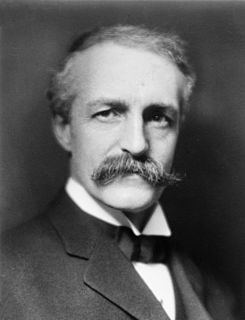A Quote by Henry David Thoreau
Every tree sends its fibres forth in search of the Wild. The cities import it at any price. Men plow and sail for it. From the forest and wilderness come the tonics and barks which brace mankind.
Related Quotes
The passage of time has not altered the capacity of the Redeemer to change men’s lives. As he said to the dead Lazarus, so he says to you and me: “come forth.” Come forth from the despair of doubt. Come forth from the sorrow of sin. Come forth from the death of disbelief. Come forth to a newness of life. Come forth.
This is what I believe: That I am I. That my soul is a dark forest. That my known self will never be more than a little clearing in the forest. That gods, strange gods, come forth from the forest into the clearing of my known self, and then go back. That I must have the courage to let them come and go. That I will never let mankind put anything over me, but that I will try always to recognize and submit to the gods in me and the gods in other men and women. There is my creed.
We can have wilderness without freedom; we can have wilderness without human life at all, but we cannot have freedom without wilderness, we cannot have freedom without leagues of open space beyond the cities, where boys and girls, men and women, can live at least part of their lives under no control but their own desires and abilities, free from any and all direct administration by their fellow men.
The wilderness is near as well as dear to every man. Even the oldest villages are indebted to the border of wild wood which surrounds them, more than to the gardens of men. There is something indescribably inspiriting and beautiful in the aspect of the forest skirting and occasionally jutting into the midst of new towns, which, like the sand-heaps of fresh fox-burrows, have sprung up in their midst. The very uprightness of the pines and maples asserts the ancient rectitude and vigor of nature. Our lives need the relief of such a background, where the pine flourishes and the jay still screams.
To preserve wild animals implies generally the creation of a forest for them to dwell in or resort to. So it is with man. A hundred years ago they sold bark in our streets peeled from our own woods. In the very aspect of those primitive and rugged trees there was, methinks, a tanning principle which hardened and consolidated the fibres of men's thoughts. Ah! already I shudder for these comparatively degenerate days of my native village, when you cannot collect a load of bark of good thickness, and we no longer produce tar and turpentine.
In some inland post feel the savagery, the utter savagery, had closed round him--all that mysterious life of the wilderness that stirs in the forest, in the jungles, in the hearts of wild men. There's no initiation either into such mysteries. He has to live in the midst of the incomprehensible, which is detestable. And it has a fascination, too, which goes to work upon him. The fascination of the abomination--you know. Imagine the growing regrets, the longing to escape, the powerless disgust, the surrender, the hate.
Lik the tree falling in the forest," says Ira. "Huh?" "You know, the old question - if a tree falls in a forest and no one's there to hear it, does it really make a sound?" Howie considers this. "Is it a pine forest, or oak?" "What's the difference?" "Oak is a much denser wood; it's more likely to be heard by someone on the freeway next to the forest where no one is.
A township where one primitive forest waves above while another primitive forest rots below,--such a town is fitted to raise not only corn and potatoes, but poets and philosophers for the coming ages. In such a soil grew Homer and Confucius and the rest, and out of such a wilderness comes the Reformer eating locusts and wild honey.
Every wild apple shrub excites our expectation thus, somewhat as every wild child. It is, perhaps, a prince in disguise. What a lesson to man! So are human beings, referred to the highest standard, the celestial fruit which they suggest and aspire to bear, browsed on by fate; and only the most persistent and strongest genius defends itself and prevails, sends a tender scion upward at last, and drops its perfect fruit on the ungrateful earth. Poets and philosophers and statesmen thus spring up in the country pastures, and outlast the hosts of unoriginal men.































